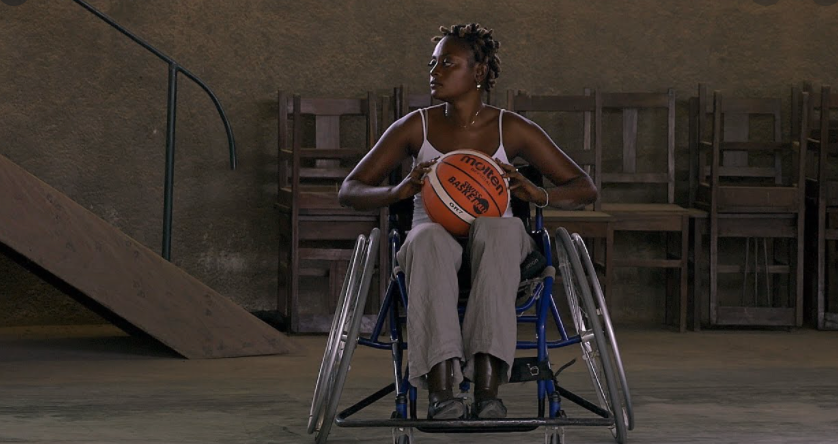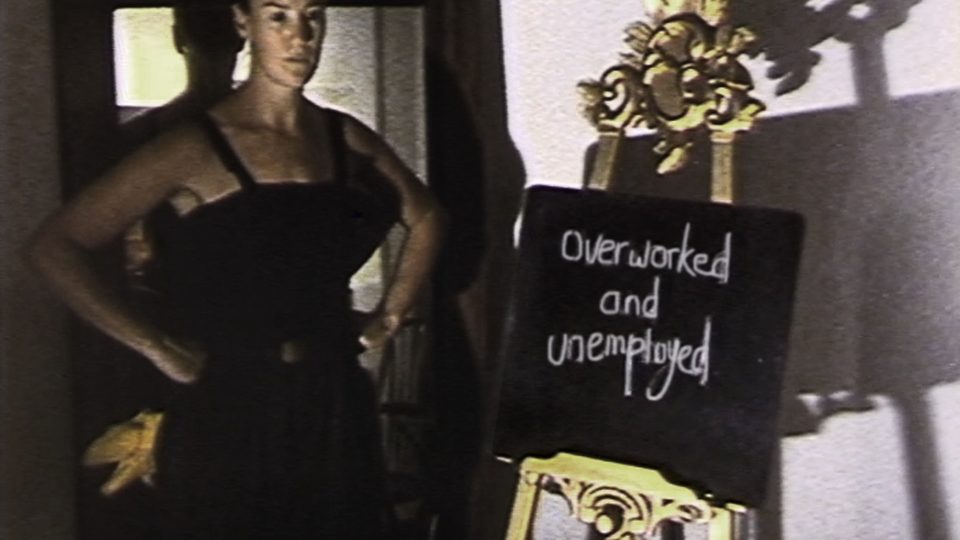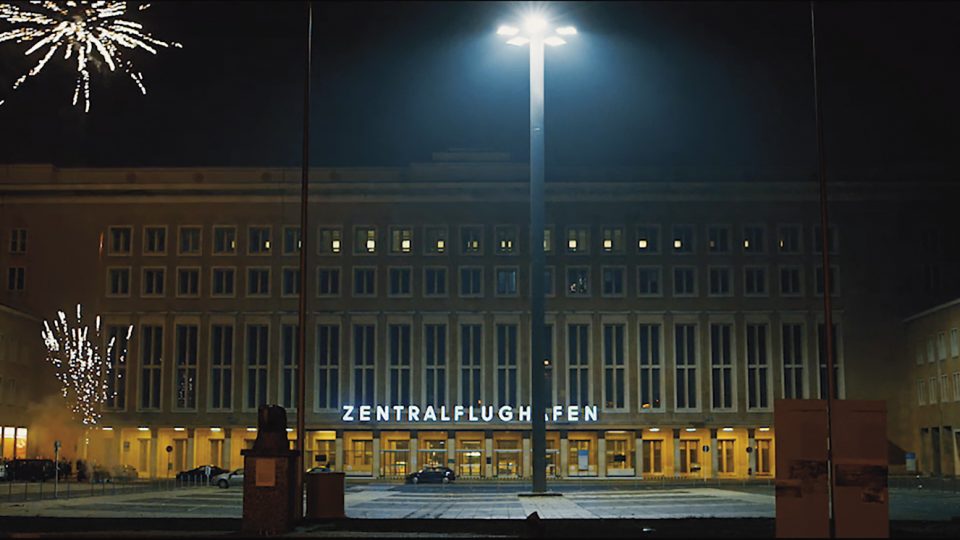
This month The Criterion Channel has unveiled an ambitious slate of Afro-Futurist Cinema, curated by Ashley Clark, which includes both films by directors from various countries in Africa and by African-American directors. It seems like a good moment to also mention the diverse features — from Lesotho, Senegal and Democratic Republic of Congo — that played at festivals throughout the year and will hopefully make their way to streaming. The director Philippe Lacôte, who himself hails from Côte d’Ivoire, and whose lush Night of Kings played at the film festivals in Venice and Toronto (TIFF), and in the New York Film Festival’s (NYFF) main slate, spoke in one of the festival Zoom interviews to the fact that financing and producing cinema in Africa continues to be an enormous challenge (hence many films that make it onto international festival circuits are coproductions).
This Is Not a Burial, It’s a Resurrection, a second feature from the Lesothan director Lemohang Jeremiah Mosese (whose previous film, Mother, I Am Suffocating. This Is My Last Film About You, 2019, won prizes at both Venice and Las Palmas de Gran Canaria International Film Festival), is a coproduction between Lesotho, South Africa and Italy. It was one of the highlights of this year’s Sundance Film Festival — I wrote about it at greater length, for MUBI — and will hopefully find its way to streaming. Very much like Pedro Costa’s Vitalina Varela, a glorious vehicle for its main actress, This Is Not a Burial, It’s a Resurrection is not only astounding cinematographically (the credit goes to the cinematographer Pierre de Villiers, who described in interviews some of the challenges of having to bring in all the equipment from South Africa), but also a vehicle for the formidable South African actress Mary Kuksie Twala, who passed away earlier this year, at the age of 81.
Twala plays Mantoa, a village leader in the mountainous region of Lesotho, who opposes the provincial officials that wish to reappropriate the village’s land to construct a dam. At the heart of the dispute lies the village’s ancient cemetery and Mantoa’s sense that, at her advanced age, there is really nowhere to go — not without the irredeemable loss of the sense of ancestral past. Not only land and history are intricately tied to each other, but also oral storytelling, a dying craft that Mosese’s film once again brings to life, through myth-inflected vignettes — these help inscribe Mantoa’s opposition into a long history of surrender, of one’s history, one’s lands, one’s gods.
In Nafi’s Father, a fiction debut feature by the Senegalese director, Mamadou Dia, which premiered at the Locarno Film Festival (where it won the award for Best First Feature), and played in the Rotterdam International Film Festival (IFFR, in the Bright Future program) and then in the New Directors New Films (NDNF) festival, a conflict between two brothers inflames and puts in danger an entire village. Tierno (Alassane Sy), the acting imam of his village, is reluctant to marry off his only daughter, Nafi (Aïcha Talla), to his brother Ousmane’s (Saïkou Lo) oldest son.Tierno tries to introduce other (rather hapless) suitors, but Nafi remains determined. Her own secret plan is to actually use marriage as an escape — her ticket to the city, where she wants to enter medical school.
In her onscreen debut, Talla lends Nafi tremendous charm and strength, as does Sy, as a taciturn but eternally dedicated father and community beacon. Saikou Lou plays the feckless, greedy Ousmane with a blood-chilling swagger that turns this tale of rivalry of two brothers into a veritable Abel-and-Cain saga. While Ousmane caters to religious extremists who soon invade the village and impose their own rigid laws, against the imam’s plea for humility and tolerance, the lovers find themselves increasingly pulled into the maelstrom. Dia’s writing, attuned to daily life as well as dramatic arcs, and his confident directing result in a film which recalls the Senegalese cinema master, Djibril Diop Mambéty, and whose sharp exploration of religious dogma invites comparisons to Abderrahmane Sissako’s Timbuktu (2014).
Dieudo Hamadi, who garnered critical praise for his previous documentary, Mama Colonel (2017), world-premiered his second feature, Downstream to Kinshasa, at TIFF. The film was then picked up by a number of key documentary film festivals, including IDFA and Open City Docs, in London, where Hamadi also gave a Master Class. Hamadi’s passionate second feature was filmed in a northeastern city on the Congo River, where during the Second Congo War, the Rwandan and Ugandan forces clashed. Hamadi focuses on survivors who lost limbs or suffered other extreme injuries during the conflict, and who band together to rally at the capital, and demand war reparations. Hamadi’s approach is remarkable particularly in tracing the deep psychological wounds that have been plaguing the survivors — not only those that have directly to do with their injuries, but also how their inability, or curtailed ability to work and provide for themselves, has forever altered how they’re treated in their community and, sometimes most bitterly, by their own families. Both a political rallying call and a quieter, dense investigation of stigma’s profound debilitation, Downstream to Kinshasa confirms Hamadi as one of the key documentary filmmakers from Africa to watch.

